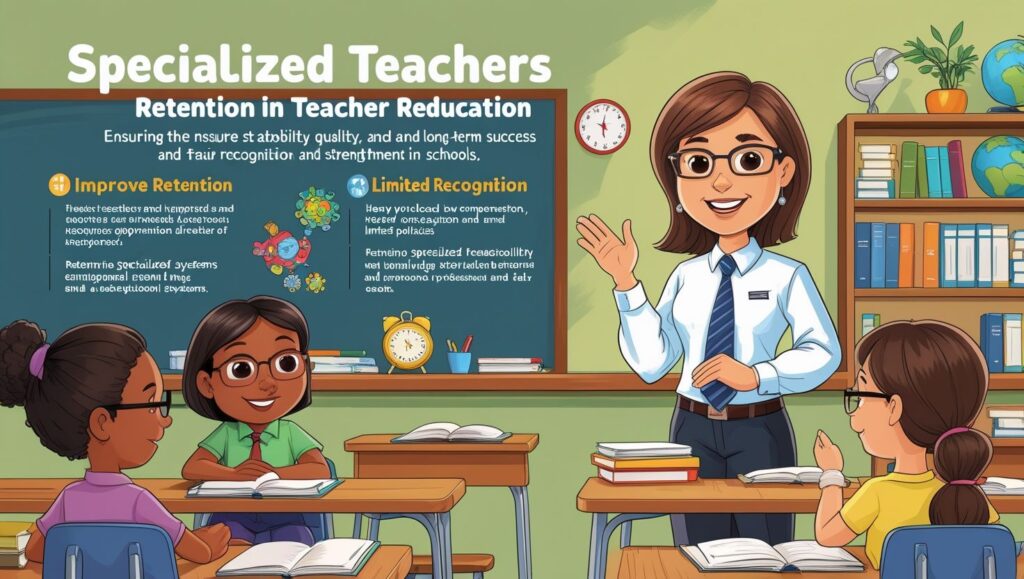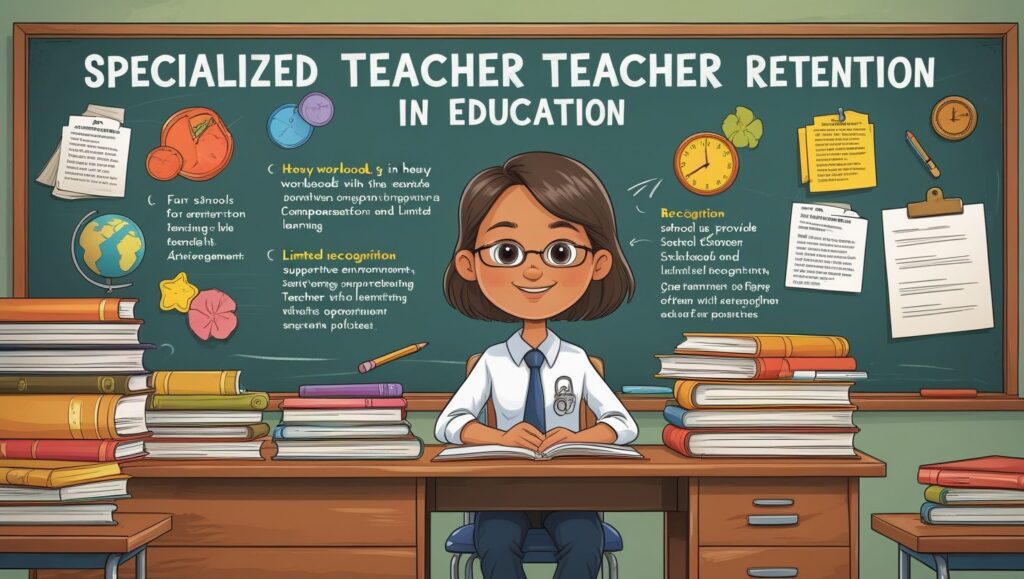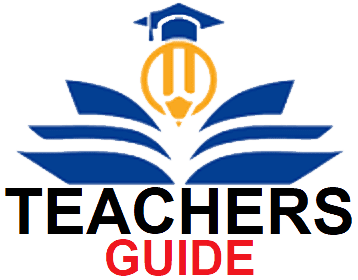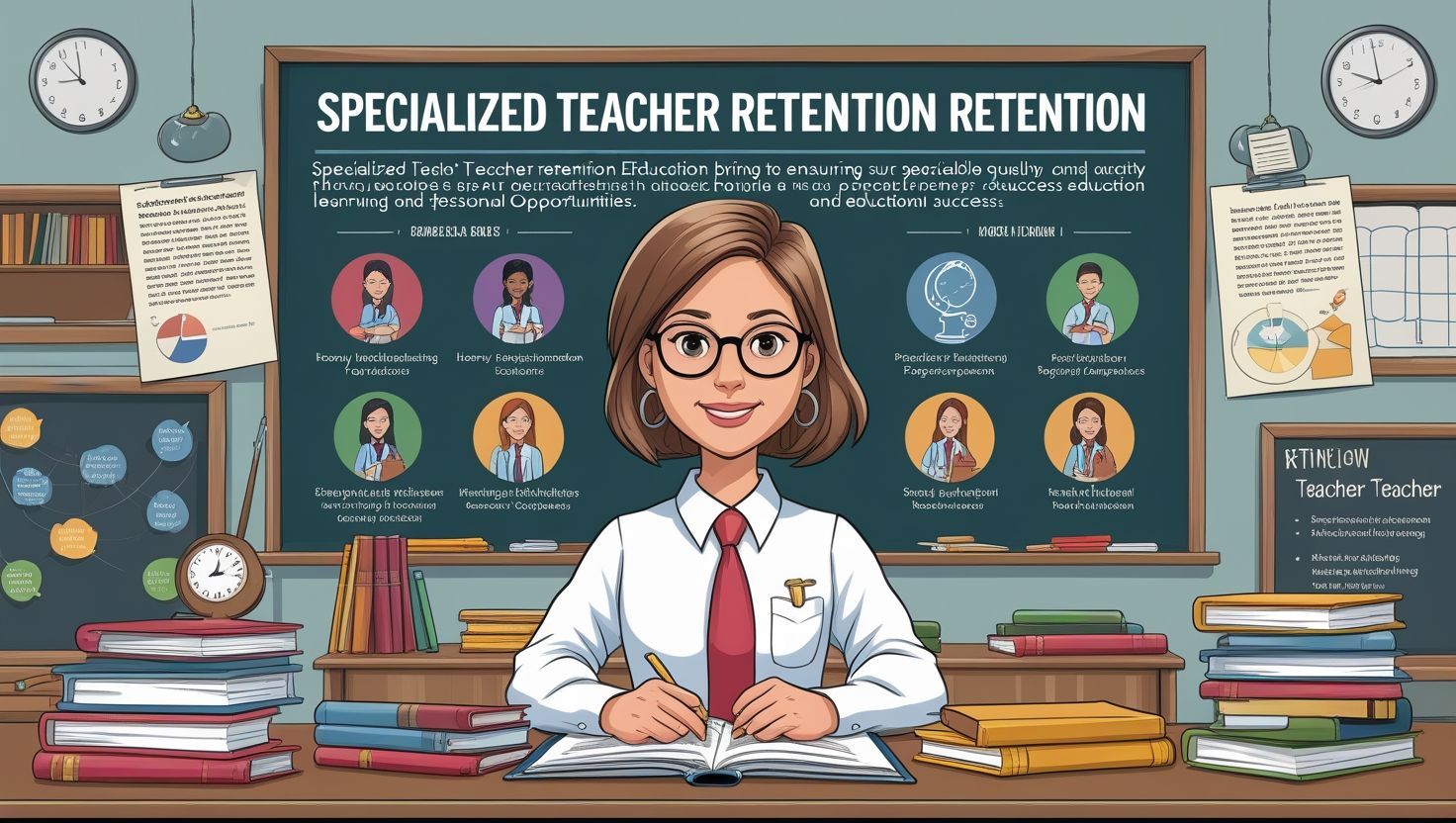Introduction
Specialized Teacher Retention in Education, Specialized teacher retention is one of the most significant challenges in education today. Schools rely heavily on qualified educators who hold unique skills, certifications, and expertise in specialized areas such as special education, STEM subjects, language learning, and vocational training. However, retaining these teachers is increasingly difficult due to workload pressure, lack of recognition, and limited career advancement opportunities. Without consistent support, many specialized teachers leave the profession, creating long-term gaps in student learning. Moreover, high turnover disrupts stability in classrooms and affects educational quality. Retention is not just about keeping teachers employed, but also about ensuring they thrive professionally. Therefore, specialized teacher retention must be treated as a priority for schools and policymakers. In order to address this challenge, it is crucial to understand the underlying factors that contribute to attrition, while also implementing strategies that enhance motivation, satisfaction, and commitment to teaching careers.
Importance of Specialized Teachers in Education
Specialized teachers bring knowledge, experience, and creativity that enrich student learning outcomes. For instance, special education teachers play a vital role in supporting children with disabilities by providing personalized instruction and accommodations. Similarly, STEM teachers introduce advanced concepts in science, technology, engineering, and mathematics, preparing students for global competitiveness. Language and vocational teachers equip learners with communication and practical skills that are essential for modern careers. Because these educators offer expertise that cannot be easily replaced, their retention directly impacts school success. When schools fail to retain specialized teachers, they struggle to maintain consistency in teaching quality. Students often face disruptions in curriculum delivery and lose opportunities to build strong learning relationships. Retaining these professionals also reduces recruitment costs and ensures experienced mentors remain in schools. Therefore, the importance of specialized teachers cannot be underestimated, as they form the backbone of a system striving to prepare students for diverse challenges in life.
Factors Contributing to Teacher Attrition
Teacher attrition is influenced by multiple interconnected factors. Firstly, workload pressure is a significant issue, as specialized teachers often manage demanding schedules, individualized lesson plans, and additional administrative responsibilities. Secondly, insufficient financial compensation discourages teachers who feel their expertise is undervalued compared to the workload they carry. Another contributing factor is the lack of professional growth opportunities, which leads to frustration and disengagement. Furthermore, inadequate classroom resources and lack of support staff increase stress levels, making it harder for teachers to perform effectively. School culture also plays an important role. A toxic work environment with limited collaboration or recognition can push teachers away. Additionally, policy changes and increased accountability without supportive systems often burden educators unnecessarily. All these factors collectively impact motivation and job satisfaction. When left unaddressed, they result in high turnover, which not only disrupts schools but also affects the long-term success of students who depend on specialized expertise.

Challenges in Retaining Specialized Teachers
Retaining specialized teachers presents unique challenges compared to retaining general educators. Specialized teachers face a higher risk of burnout due to the complexity of their roles. For example, special education teachers must collaborate with families, therapists, and administrators while tailoring lessons for diverse learners. This workload often surpasses that of other teaching positions. Moreover, specialized teachers are often in high demand globally, which makes competition for their services intense. Schools in rural or underserved areas particularly struggle, as they cannot match the salaries or facilities offered in urban districts. Another major challenge is limited recognition of their expertise. Many specialized teachers feel undervalued within educational systems that prioritize standardized testing over individualized instruction. Additionally, some school systems lack effective mentoring and support networks for specialized staff, leaving them isolated. Without proper acknowledgment and resources, these professionals are more likely to leave. Therefore, retaining specialized teachers requires customized approaches that address these unique challenges.
Role of School Leadership in Retention
School leadership plays a crucial role in improving specialized teacher retention. Principals, administrators, and education managers set the tone for the work environment. Supportive leadership builds trust, encourages collaboration, and helps teachers feel valued. Leaders who invest in mentorship programs ensure that specialized teachers receive guidance and encouragement. Recognition of achievements, even in small ways, significantly boosts morale. Additionally, transparent communication and fair distribution of responsibilities prevent burnout. When school leaders provide adequate classroom resources, teachers can focus more on teaching rather than struggling with shortages. Moreover, fostering a culture of respect and inclusion creates a positive climate that encourages teachers to stay. Leadership also involves advocating for fair salaries and professional development opportunities, which demonstrate long-term commitment to teacher success. Importantly, administrators must listen to teacher concerns and actively implement solutions. By prioritizing teacher well-being and creating a collaborative atmosphere, school leadership directly influences retention outcomes in meaningful ways.
Professional Development and Growth Opportunities
Professional development is a cornerstone of specialized teacher retention. Teachers remain motivated when they are given opportunities to improve their skills, learn new methods, and expand expertise. Continuous training programs help specialized teachers stay updated with evolving educational practices and technology integration. Workshops, conferences, and certification courses provide platforms for networking and knowledge sharing. Furthermore, offering career advancement opportunities, such as leadership roles or research projects, prevents stagnation and boosts motivation. Teachers who perceive a clear career path are less likely to leave. Professional development also fosters confidence in dealing with complex classroom challenges. It demonstrates institutional investment in teacher growth, which enhances loyalty and job satisfaction. However, development opportunities must be tailored to specific needs rather than generic programs. For example, special education teachers benefit from training in behavioral management strategies, while STEM teachers may require exposure to emerging technologies. Ultimately, professional development builds resilience and commitment among specialized teachers.

Impact of Workload and Compensation
Workload and compensation are closely linked to specialized teacher retention. Excessive workloads often lead to burnout, which is one of the most common reasons teachers leave. Specialized teachers are required to create individualized education plans, collaborate with multiple stakeholders, and often manage larger class sizes or unique student needs. When workload becomes overwhelming, teachers feel undervalued and overburdened. Compensation further influences retention. Teachers with advanced skills or certifications often expect salaries that reflect their expertise. However, many schools fail to provide competitive pay, especially in public sectors or underserved regions. This imbalance between workload and compensation creates dissatisfaction. Additionally, lack of financial incentives for extra responsibilities discourages teachers from continuing long-term. To address this, schools must focus on equitable compensation, workload reduction, and non-monetary benefits such as flexible schedules or wellness programs. When workload and compensation are balanced, specialized teachers are more likely to remain dedicated to their profession.
Building Supportive School Environments
A supportive school environment is essential for retaining specialized teachers. Teachers thrive when they feel respected, appreciated, and included in decision-making processes. Strong peer collaboration reduces feelings of isolation and promotes shared problem-solving. Mentorship programs pair experienced teachers with newcomers, creating a sense of belonging and professional support. Moreover, emotional well-being must be prioritized through access to counseling services and wellness initiatives. Teachers working in positive school cultures experience higher job satisfaction and reduced stress. Recognition programs also enhance morale, reinforcing the value of teacher contributions. Furthermore, inclusive policies that promote diversity and respect for all staff members build a stronger community. Practical support, such as adequate teaching resources, classroom aides, and modern technology, also improves working conditions. When schools foster trust, transparency, and mutual respect, specialized teachers are more inclined to stay. A supportive environment not only retains educators but also enhances student outcomes through consistent and committed teaching.
Policy Interventions for Teacher Retention
Policy interventions are critical to addressing specialized teacher retention challenges. Governments and educational authorities must design frameworks that prioritize teacher well-being and long-term commitment. Policies can include competitive salaries, retention bonuses, and loan forgiveness programs for specialized teachers working in underserved regions. Additionally, investment in professional development ensures teachers continue to grow in their careers. Policymakers should also mandate reasonable workload limits and provide support staff to reduce teacher burnout. Legal protections against workplace discrimination and clear career progression pathways further strengthen retention efforts. Moreover, national education strategies should emphasize specialized teaching as a valued profession, thereby raising its status. Regular surveys and feedback systems can help identify teacher concerns and guide policy adjustments. Importantly, policies must be implemented consistently and backed by adequate funding. Without strong policy interventions, schools alone cannot sustain specialized teacher retention. Therefore, collaboration between governments, school leaders, and communities is essential for long-term success.
Conclusion: Strengthening Retention for the Future
Specialized teacher retention is vital for maintaining the quality, stability, and inclusiveness of education systems. Teachers with unique expertise contribute directly to student achievement and long-term societal progress. However, they face challenges such as heavy workloads, insufficient compensation, and limited recognition. To overcome these barriers, schools must provide supportive environments, professional growth opportunities, and strong leadership. Governments also play a key role in shaping policies that prioritize teacher well-being. Retention strategies must be comprehensive, balancing financial incentives with respect, mentorship, and career advancement. Ultimately, investing in specialized teacher retention is an investment in future generations of learners. Without consistent efforts, education systems risk losing valuable talent, which can create gaps that are difficult to fill. By recognizing the importance of retention and taking practical steps to address it, schools and policymakers can ensure that specialized teachers remain motivated, engaged, and committed to shaping the future.
References
- Ingersoll, R. M., & Strong, M. (2011). The impact of induction and mentoring programs for beginning teachers: A critical review of the research. Review of Educational Research, 81(2), 201–233.
- Darling-Hammond, L. (2010). Teacher education and the American future. Journal of Teacher Education, 61(1-2), 35–47.
- Sutcher, L., Darling-Hammond, L., & Carver-Thomas, D. (2016). A coming crisis in teaching? Teacher supply, demand, and shortages in the U.S. Learning Policy Institute.
- Guarino, C. M., Santibañez, L., & Daley, G. A. (2006). Teacher recruitment and retention: A review of the recent empirical literature. Review of Educational Research, 76(2), 173–208.
- Johnson, S. M., & Birkeland, S. E. (2003). Pursuing a “sense of success”: New teachers explain their career decisions. American Educational Research Journal, 40(3), 581–617.


Hello my loved one I want to say that this post is amazing great written and include almost all significant infos I would like to look extra posts like this